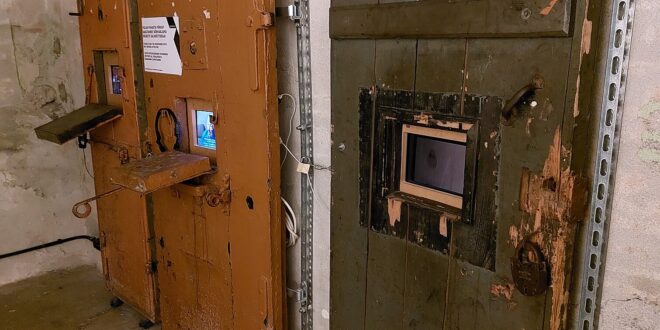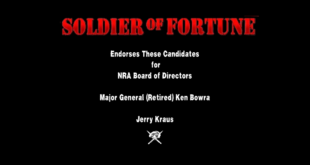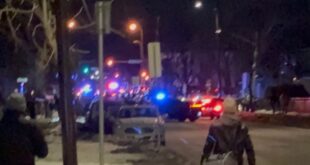COMMENTARY by Susan Katz Keating
The United States and other Western countries are suitably popping the Champagne corks over today’s historic prisoner swap with Russia. But what is the Kremlin celebrating, as its human take includes a convicted hitman, an arms dealer, and a money launderer?
Street creds at home. Affirmation to its people convicted abroad as assassins and big-time criminals: “We will get you back.”
The U.S. and several other countries on Aug 1 embarked on the largest prisoner swap since the end of the Cold War. As part of the exchange, the West recouped 16 people, including Paul Whelan, dissident Vladimir Kara-Murza, and journalists Evan Gershkovich and Alsu Kurmasheva. The westerners were freed from Russian prisons after being convicted on charges they and their employers vehemently denied, while eight Russians were sent home.
“The deal that secured their freedom was a feat of diplomacy,” U.S. President Joe Biden said in a statement marking the swap on August 1.
Russian President Vladimir Putin must also be pleased, albeit for different reasons.
Among those returned to Russia was convicted assassin Vadim Krasikov, the so-called bicycle killer, who was serving a life sentence in Germany for murder. Others include cyber criminals Roman Seleznev and Vladislav Klyushin.
Krasikov in particular is important for Russia. A former FSB colonel, Krasikov was sentenced in Germany for killing a former Chechen separatist commander in 2019. Prosecutors said the hit was ordered by Moscow.
He intrinsically is not a great prize, but his return signals to other expeditionary, captured assassins that Russia will bring them home. Krasikov’s return presents the Kremlin with the opportunity to bolster its creds among its people who work abroad in the shadows. The exchange surely resonates within the ranks of Russian operatives who will see that their colleague, the convicted assassin, has not been abandoned – a position echoed by one noted security expert who specializes in Russia.
By recouping Krasikov, the Russians signal others that if they get caught abroad, they would be brought home, Mark Galeotti previously told the BBC.
“That’s very important for getting people to put themselves in potentially very dangerous situations,” Galeotti said.
The Kremlin this year was prepared to release two American citizens and Alexei Navalny in exchange for Krasikov, others have said. A complex deal was in the works in early 2024, Investigative journalist Christo Grozev told RFE/RL. The deal fell through after Navalny died inside Russia’s brutal “Polar Wolf” prison.
Some of my security sources have speculated that Navalny died after word began circulating that he might be included in a high stakes prisoner swap. The sources discussed a scenario wherein hardliners inside Russia made sure Navalny would not be released.
“It’s talk. It’s only talk,” one European based contact told me. “We can’t prove it.”
READ MORE: Russia and US Discussing Prisoner Swap to Free American Journalist, Kremlin Says
Whether truth or fantasy, though, the scenario did not play out with the Aug. 1 swap. The details were kept tightly secret.
Speculation about a swap began swirling on Wednesday, when lawyers and family members said they could not reach their imprisoned Westerners. It further was fueled when some Russian convicts’ names seemed to vanish from U.S. prisoner databases.
When news emerged of a swap on Thursday, few details were released about the then-unconfirmed exchange.
The news was accompanied at times by considerable confusion.
The Clash Report news site posted video described as showing the Aug 1 prisoner exchange; but viewers quickly pointed out that the footage was from two years ago, depicting American Trevor Reed being exchanged for Russian Konstantin Yaroshenko.
Turkey’s National Intelligence Organisation (MIT) said on August 1 it played “a major mediation role” in the swap involving 26 people from prisons in seven countries, “which is the most comprehensive in recent times.”
The Kremlin hopes that the freed prisoners do not come back to Russia, spokesman Dmitry Peskov told TASS.
“I believe that all our enemies should stay [abroad], and all those who are not our enemies should return. That’s my point of view,” Peskov said.
Russia meanwhile maintains Interpol Red Notices against four Russian-American subjects. They do not fall into the category of expeditionary hitmen. They are Elena Savina, 84, who is wanted for aggravated fraud, intentional infliction of heavy bodily injuries, attempted murder, driving another to commit suicide. Others are Grigory Bado, 75, for large scale fraud; Maksim Klochin, 49, for large scale fraud; and Yuzev Abramov, 66, for sex-related crimes.
Any at-large hit men of course are likely to remain in the shadows unless they are arrested.
The U.S. State Department in June updated its travel advisory regarding Russia, warning American citizens that they may face detention there.
“Do not travel to Russia,” the State Department wrote on its website. Noting that the U.S. Embassy has a limited ability to assist Americans in Russia, the agency wrote: “U.S. citizens may face harassment or detention by Russian security officials, arbitrary enforcement of local laws, limited flights into and out of Russia, and the possibility of terrorism.”
The Department told U.S. citizens living or traveling in Russia that they “should leave immediately.”
For the moment, the swaps have been done. Any future prisoners likely won’t be placed on any exchange lists for long years to come.
The Kremlin did not immediately return a request for comment.
Susan Katz Keating is the publisher and editor in chief at Soldier of Fortune.
 Soldier of Fortune Magazine The Journal of Professional Adventurers
Soldier of Fortune Magazine The Journal of Professional Adventurers






